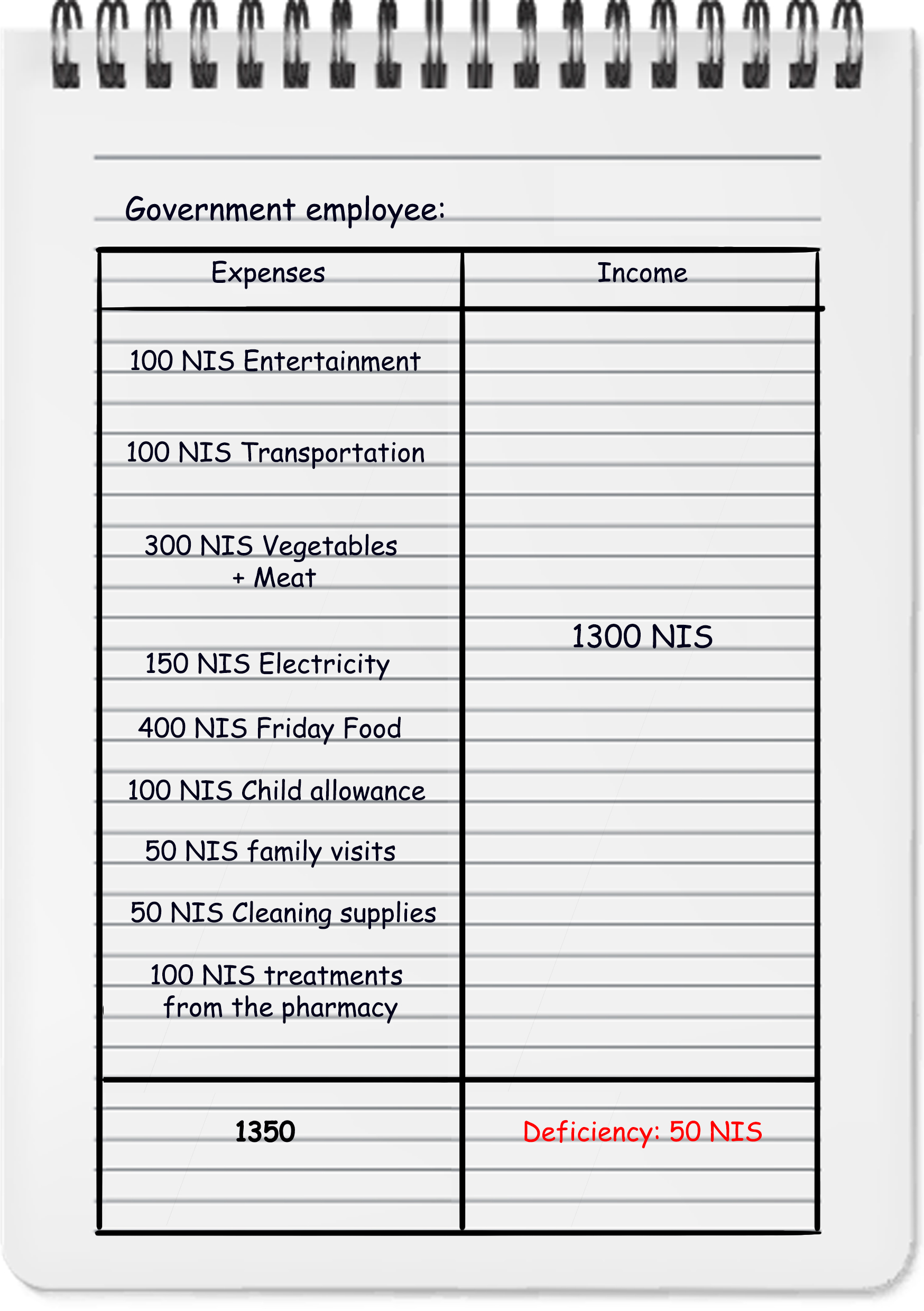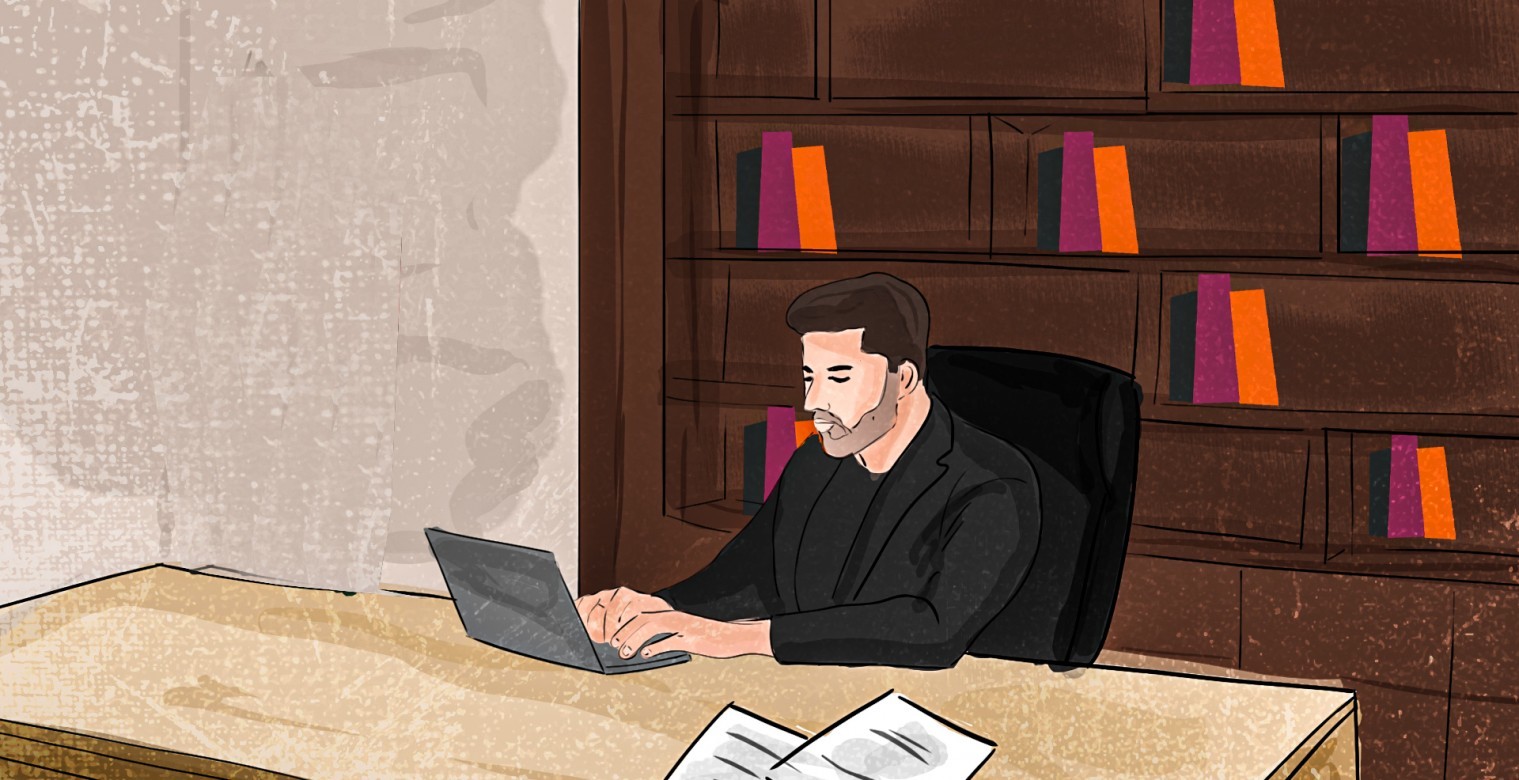Hussein Jawad (30 years old) spends most of his time working behind his desk as an employee in a government department in the city of Gaza, from eight in the morning until two in the afternoon. Despite the monotony of government work, he is content with it due to the lack of other available opportunities.
Although he has been working in his profession for years, he only receives 60% of his basic salary, while the remainder is deferred to future payments. He has not received any promotions, a situation shared by thousands of government employees in Gaza, estimated to number 42,000.
The situation of Palestinian Authority employees, who receive their salaries from the government in Ramallah, is not much different. They have also suffered from salary deductions, the suspension of bonuses and promotions due to ministerial decisions.
These conditions have led to the exhaustion of public sector employees in Gaza and the West Bank due to the Palestinian division. This sector was previously one of the financially stable social classes.
In Gaza, government employees used to have good financial conditions, and the market known as "The Employees' Market" in the old town of Gaza, which was famous for the quality and high prices of its goods, reflected this.
Jawad earns 1,300 shekels per month (equivalent to $360) from his job, which he divides among the various expenses related to his family and children.
Despite his deteriorating financial situation, Hussein, a father of four, does not hesitate to provide his children with entertainment and outings at least once a month. He chooses affordable places, such as the municipal park in the middle of Gaza City, which imposes a symbolic fee of 2 shekels for adults, while he spends around 100 shekels on food and games.
In addition to this, Hussein is forced to pay daily transportation costs of around 100 shekels per month, and he provides his children with clothes, although he describes them as "Incomplete clothing, but only providing clothing deficiencies" at a cost of around 300 shekels per month.
Occasionally, he visits a café overlooking the beach, known for its affordable prices, with his friends in this semi-weekly session.
Hussein does not have an internet subscription at home, but he compensates by using the internet on his mobile phone via his neighbors' connection. However, he pays a monthly electricity bill of approximately 150 shekels without wasting the use of electrical appliances, according to him.
The value of his salary is not sufficient, especially with the increase in expenses during Ramadan and Eid, which impose significant financial obligations on employees in particular, and the public in general.
Despite the financial hardships that Hussein and other government employees suffer from, he tries to improve his living conditions and hopes to buy a car that would ease his daily transportation, but this remains an unattainable dream given his monthly shortfall.
Below is a list of the expenses and shortfall that employee Jawad is facing:





